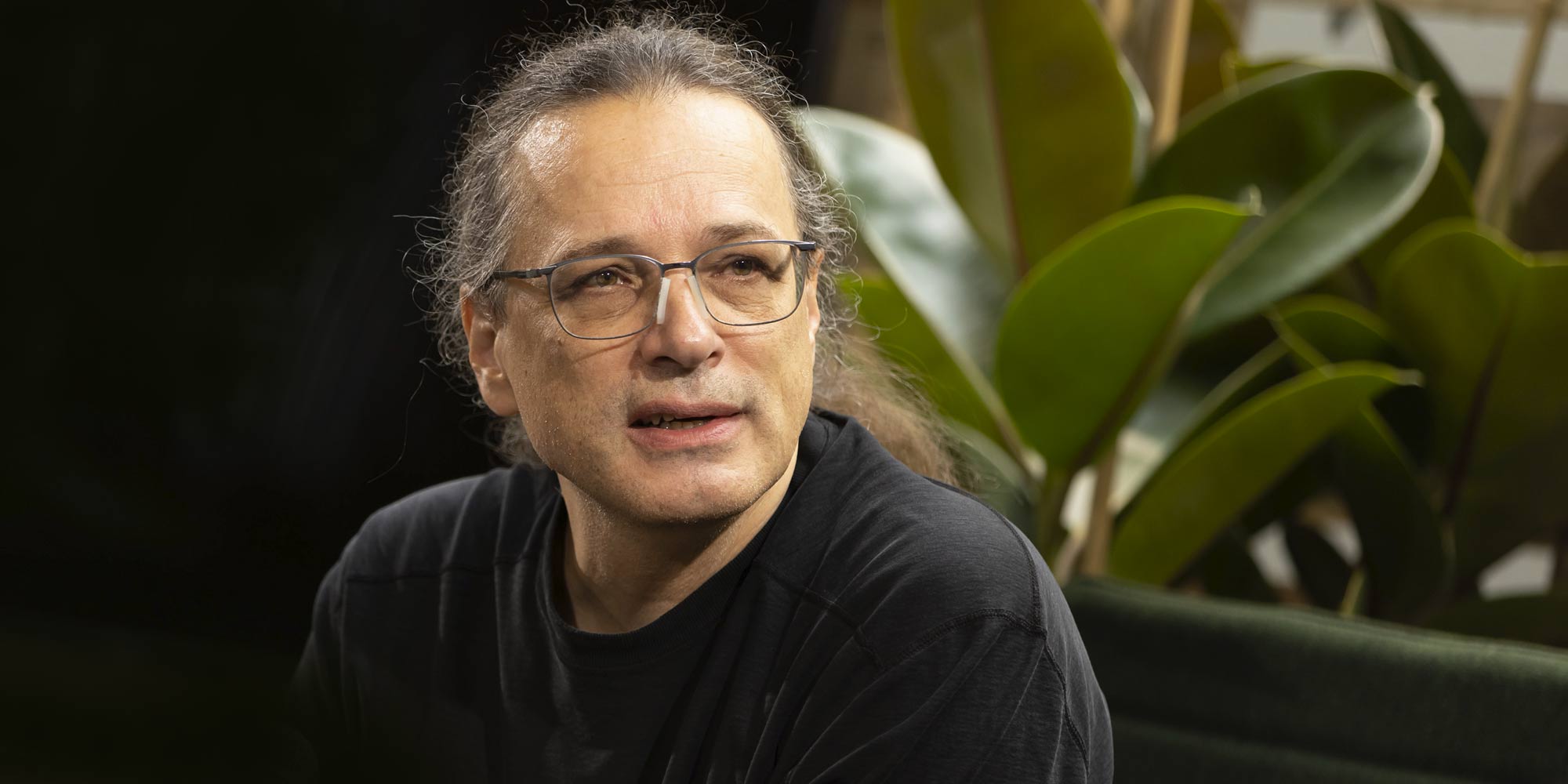The facts are on the table. So is the apocalyptic scenario for Planet A if things continue unchanged. Now it’s up to the global community to work together to flip the switch for change. Gerfried Stocker, Artistic Director of Ars Electronica, is convinced that art can not only underscore or highlight the issue of climate change, but above all make new spaces for thought possible.

In this first part of the interview with Gerfried Stocker, we devote attention to the role of art, which could help us in some way with the hopelessness of the climate crisis. In the second part, we will then look at where and how the Ars Electronica Festival wants to position itself as a sustainable event.
From September 7-11, 2022, the Festival for Art, Technology and Society will take place in Linz, Austria, and with the active participation of international artists in the search for answers to the contradictions of our time. Let’s imagine “Planet B” in the future – what if we still manage to turn the corner?
Why is this year’s Ars Electronica Festival devoted to “Planet B”?
Gerfried Stocker: With the Ars Electronica Festival, we have the particularly beautiful and luxurious situation of being able to focus on a specific theme every year anew and to use the festival as an instrument and expedition ship for getting to the bottom of the associated questions.
A festival theme always emerges as a reaction to current issues in society. We see what artists are working on at the moment, what interests them and what thoughts and discourses they take up that are currently circulating in our society. And these revolve more and more around the consequences of climate change and the many unknowns of a necessary change.
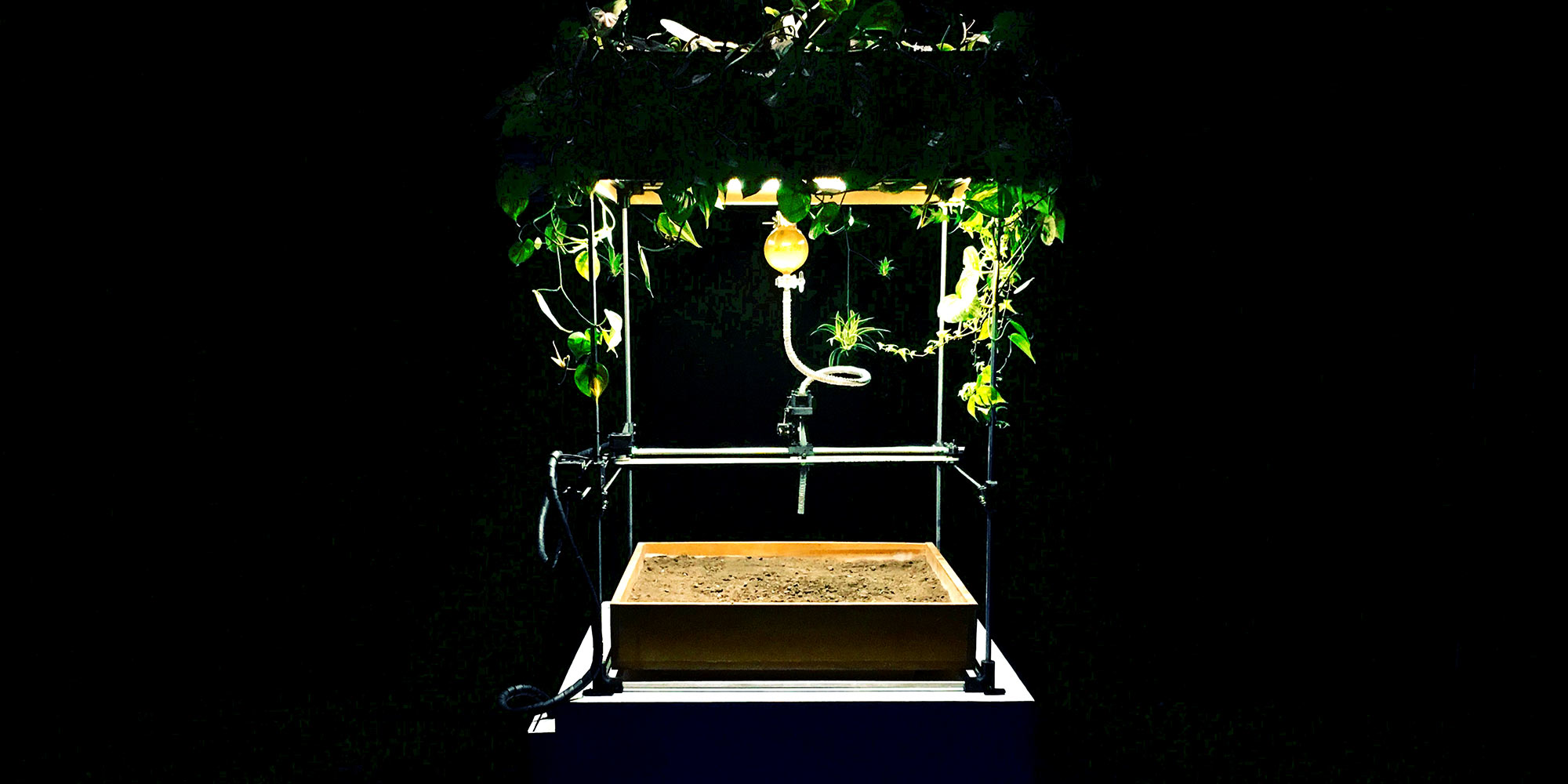
Many international artists will participate in the festival again this year, bringing their different perspectives on a global problem…
Gerfried Stocker: That’s also what makes Ars Electronica so exciting. Just recently, at the jury session for the CIFO-Ars Electronica Awards for Latin American media artists, I saw again how large the number of projects dedicated to this theme is, but also how different the perspectives on it are. In the global South, sociopolitical issues and the confrontation with what has been done wrong by powerful societies are much more present. Here, the issues of colonialism also still play a major role.
But projects that deal with alternative materials are also exciting to consider in this context. It’s a trend that we already dealt with intensively at the 2016 Ars Electronica Festival “Radical Atoms”. While we in our latitudes find the possibilities of these new materials fascinating, in the concepts and motivations of Latin American artists one reads above all the urgency contained in a socio-political-critical position or necessity to finally want to change reality.
This is where the example of the “Green Mosaic” by agricultural expert Tony Rinaudo comes in. He has succeeded in increasing the vegetation in the Sahel with the help of old tree stands and transforming parts of the desert back into green zones. In this project, too, it was clearly the different approach that was the driving force – not just a different idea or technique, but above all a different attitude to things.
For one person the drive is a gimmick, for another the necessity…
Gerfried Stocker: One is very quickly inclined to simplify it that way – but it’s not that simple, because depending on one’s perspective, one pushes the other away. When people talk about “gimmickry”, this is a culturally conditioned focus on processes and technologies, and not the approach of wanting to change something fundamental.
In the Global North, we don’t really want to change anything in our world, do we? Isn’t it great how we can currently live in our country? Our approach to changing things is a more distanced one. If anything, we want to change things in an externalized way. After all, we want to preserve what concerns us. But it’s just as legitimate to say that my living situation is so dramatically bad that I want to change something much more fundamental.
How then does this fit together when some want to change little and others want to change much more?
Gerfried Stocker: The exciting thing is that there is a great willingness to change on both sides. That is why it is so important to study the methods, structures and phenomena of change itself, and to talk about the basic phenomenology of change and transformation even here in the global North!
“It is perhaps a banality to put it this way, but it is exactly about this difference: We recognize a change and believe that we have to react to it. Strictly speaking, however, this approach always excludes the fact that one actually has to change oneself!”
These are all truisms, but that cumulates in this current problem. Let’s just take our festival as an example. Isn’t it highly risky and frivolous for a festival to stand behind this issue and at the same time say that we’re looking forward to many international guests coming to Linz again this year? That is precisely the key point! The paradox, or let’s say the impossibility, of wanting to solve existing problems with the previous thought structures and methods.
How can art build a bridge between the awareness that change is necessary to the implementation of that change?
Gerfried Stocker: The means of art are in this case very strongly connected with the means of the intellect – and ultimately also with the means of science. What do we expect from science? The invention of a fan that eliminates every superfluous CO2 in the air at the push of a button? Actually, science is there to help us deal with this problem intellectually and to put us on the right track. This is done by various means.
“However, science alone will not solve the problem any more than art. Art and science, however, are the basic prerequisite for us to pull the levers at all.”
Art, on the one hand, is about creating consciousness. A point that art has actually fulfilled very successfully so far. But it is not only art, but in the case of climate change the youth movement around Greta Thunberg that has recently brought the issue and its urgency to our attention again and again.
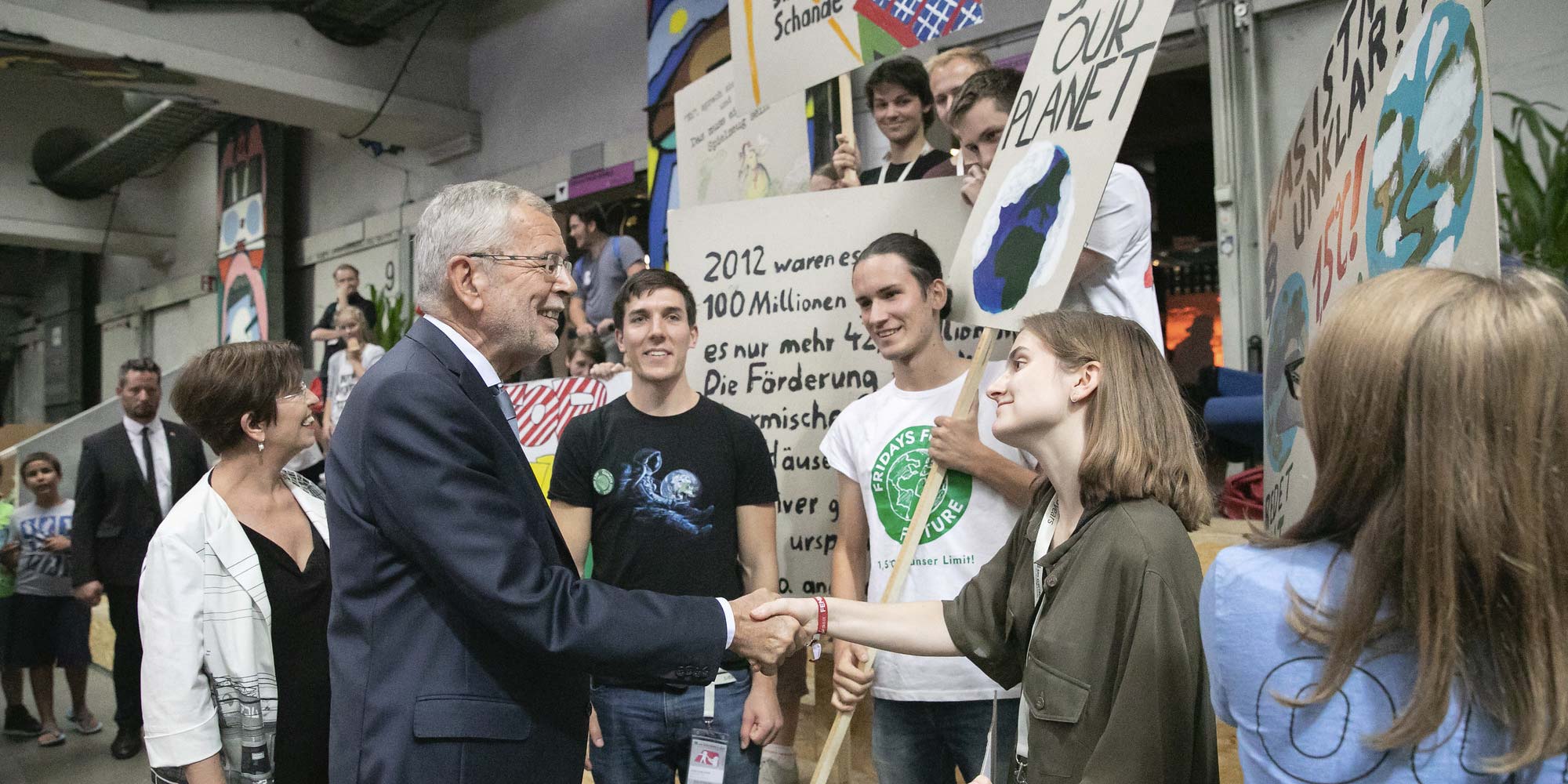
The awareness of the explosive situation and the indispensable need for change is already there. There are still enough people who ignore it, but awareness is not going to disappear any time soon. At the moment, the issue is still being subliminally discussed away – especially in areas such as industry, where the aim is to postpone these changes out of profit-oriented interest.
In the political world, there is a different sense of responsibility, but the issue tends to be averted and pushed away. Here, the actors are certainly aware of the sheer size of the problem and the knowledge of the sociopolitical explosives it contains.
An explosive that elected leaders do not want to ignite so quickly, at least not during their term in office.
Gerfried Stocker: The example of the Ukraine war and the associated gas and oil embargo against Russia shows very clearly that it is not so easy to break away from dependence without having to accept sacrifices. One is quickly tempted to meander around the problem and intuitively describe the situation as hopeless. The dilemma seems so great that the paradox behind it is so difficult to resolve.
But even before the war in Ukraine, there were many voices for breaking away from the gas and oil dependence of these regimes and for no longer supporting countries that export fossil fuels – especially if they do not represent European values. Very quickly, people discover that there is no happy medium in terms of compromise. And that, in turn, very quickly leads to a sense of hopelessness.
Does art give us hope?
Gerfried Stocker: Art cannot take this hopelessness away from us, because it does not have the solution ready either. But artistic work and artistic thinking is a method of thinking. Art opens a place and a space of thinking, in which one can endure and work on this insolubility of the question.
In every other sphere shaped by rationalities – from technical-scientific factual considerations to socio-economic profit-oriented trade-offs – this unresolvability of the knot is simply unbearable. Because there is no space and no method to deal with the fact that things simply don’t fit together. In art, this is completely self-evident. The history of art is full of precisely these things, that it dealt with the great dilemmas and paradoxes of humanity.
So art gives us the necessary thinking space we need?
Gerfried Stocker: This is perhaps a very abstract view. But if nothing else works, the only chance we have is to look at the phenomenology of change. What does change mean? How can change happen at all? You have to think about change processes at this meta-level.
“Change is always what is needed to get out of a deadlock. If I have ways out, I don’t need to change anything. Then you just go a little more to the left, a little more to the right, you turn around briefly or stop for a moment. Change is only really necessary when there is actually no way out.”
In reality, art is the mental place and space for us humans where we can deal with all the contradictions, clashes and conflicts. We have to cultivate this, practice dealing with it and get used to the fact that apparent hopelessness does not necessarily turn into depression or aggression.
And when the clashes and conflicts do become reality?
Gerfried Stocker: The really big danger of the climate catastrophe is ultimately – and here I don’t want to downplay the dramatic change in habitats and living conditions – that we know how people react when they are backed into a corner. We’re backing ourselves into a corner right now as an entire human race. That’s the hard part – that we’re in a level of abstraction or a meta-level when we do that. How and where else is this to be discussed than in the free spaces of art?
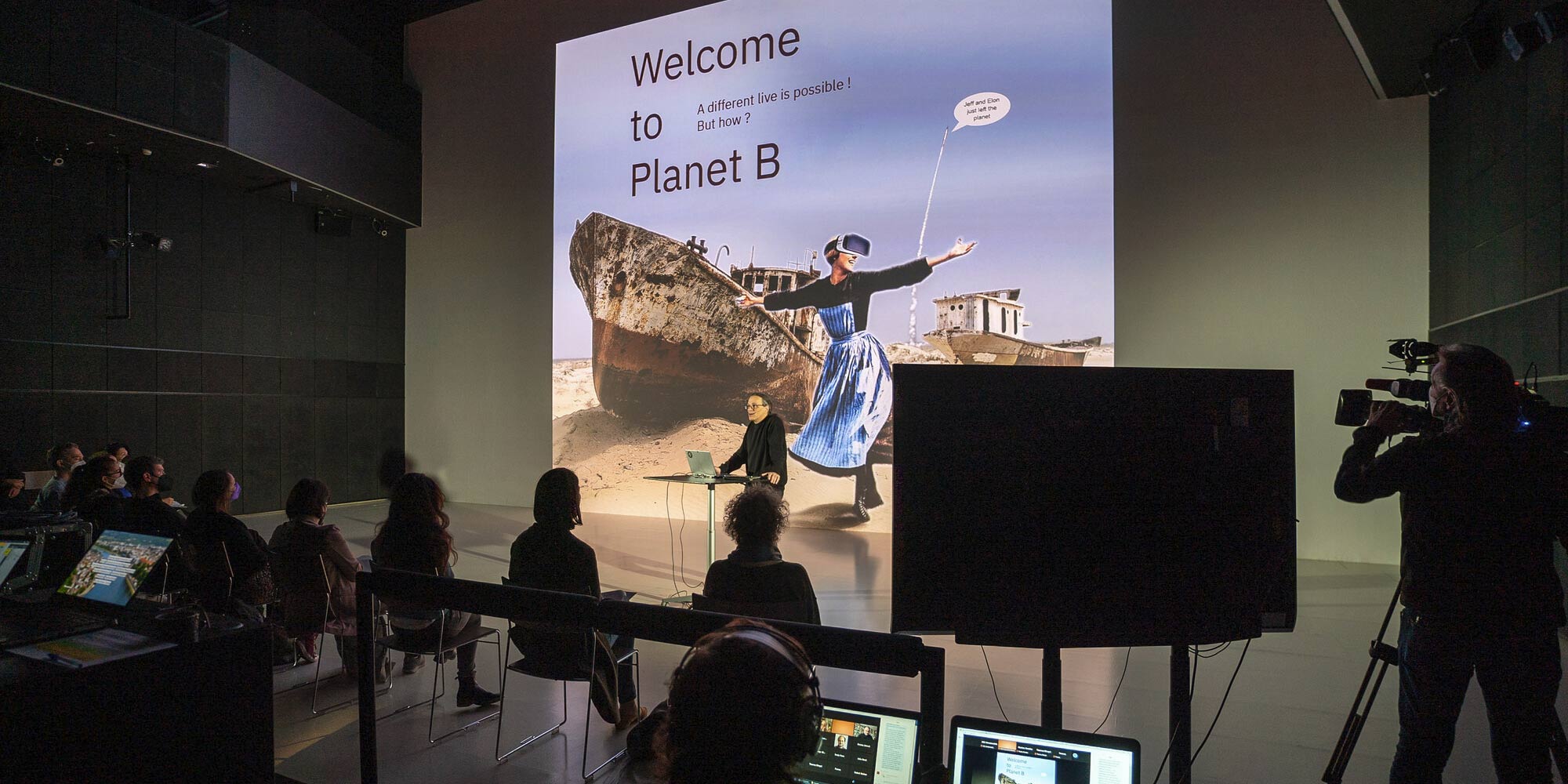
If you look out the window, you don’t see the fire burning – and that’s why we don’t put it out.
Gerfried Stocker: It’s not hurting us enough yet. There are forest fires, floods, but the number of climate catastrophes per year in our latitudes is still low. But we are in a state of fear and shock.
In recent years, we have seen enough images and reports that we can imagine the future of Planet A if we do not act in time. We are afraid of the effects of climate change and, to the same extent, of this uncertainty.
What risks and consequences are we taking on? As provocative as it sounds, we have to deal with the “collateral damage,” because one of the central questions is: What effects and consequences will all this have for us? How much persuasion will be necessary? How much pressure, how much coercion? What form of society is most likely to deal with this problem?
The hopelessness is not only found on a technological level: Would we really be able to stop climate change even with a focus on nuclear power plants? When it comes to the production of solar cells, have we thought about it down to the last detail when it comes to the raw material extraction or disposal required for it? And why does building wind power plants still require so much fossil energy?
The hopelessness also arises at the societal level. The very idea that a system like China might be better equipped to curb climate change, and that democratic society might not be the form of society that can still manage the climate catastrophe in time, is very disturbing.
However, after the worldwide experience with the pandemic, it will take more than just getting over yourself again and wearing an FFP2 protective mask for a few weeks.
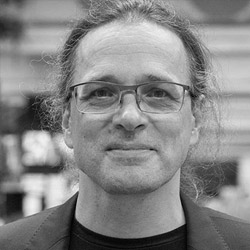
Gerfried Stocker is a media artist and an engineer for communication technology and has been artistic director and co-CEO of Ars Electronica since 1995. In 1995/96 he developed the exhibition strategies of the Ars Electronica Center with a small team of artists and technicians and was responsible for the setup and establishment of Ars Electronica’s own R & D facility, the Ars Electronica Futurelab. He has overseen the development of the program for international Ars Electronica exhibitions since 2004, the planning and the revamping of the contents for the Ars Electronica Center, which was enlarged in 2009, since 2005; the expansion of the Ars Electronica Festival since 2015; and the extensive overhaul of Ars Electronica Center’s contents and interior design in 2019. Stocker is a consultant for numerous companies and institutions in the field of creativity and innovation management and is active as a guest lecturer at international conferences and universities. In 2019 he was awarded an honorary doctorate from Aalto University, Finland.
